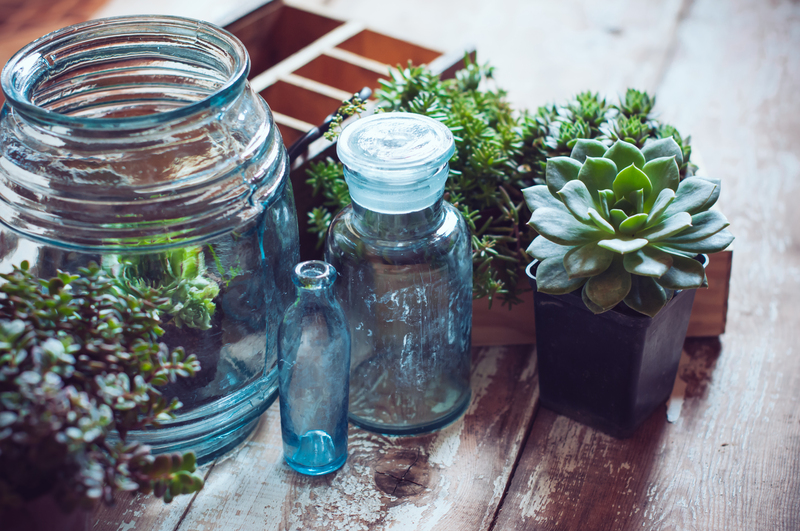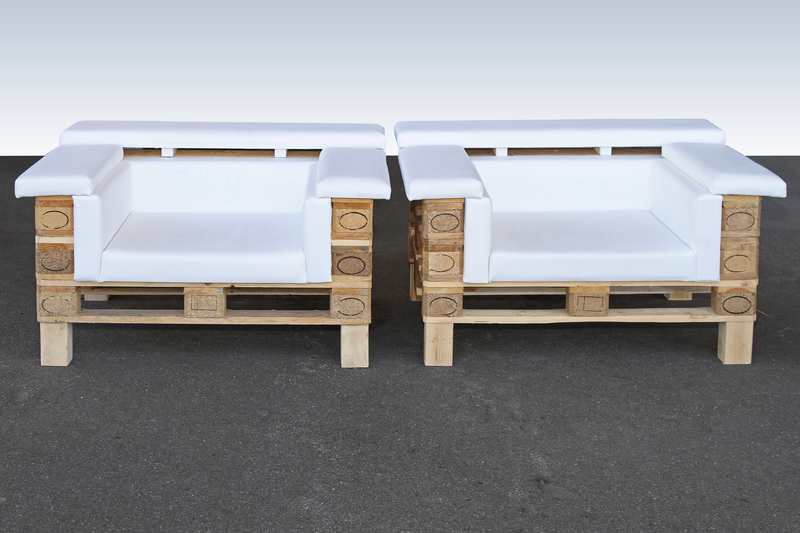Find Stress Relief by Mastering De-cluttering Techniques
Are you overwhelmed by physical clutter and constant distractions? Do you crave peace, tranquility, and improved focus? Discover how mastering the art of de-cluttering can dramatically reduce stress, boost productivity, and enhance your well-being.

Understanding the Connection Between Clutter and Stress
Modern life is full of pressures--work commitments, family expectations, endless notifications, and, all too often, crowded spaces filled with unused or unnecessary things. Studies have shown that physical clutter can directly elevate stress hormones, diminish mental clarity, and even impact relationships and sleep quality.
- Clutter Overloads Our Senses: Visual chaos makes it hard for the brain to focus.
- Disorganization Wastes Time: Searching for misplaced items leads to frustration.
- Emotional Weight: Clutter can trigger feelings of guilt, anxiety, or embarrassment.
De-cluttering techniques offer a direct, actionable path to reclaim space--both physically and mentally. By learning to let go and organize, you're not just rearranging objects but fostering a calmer, happier mindset for long-term stress relief.
The Science Behind De-cluttering and Stress Relief
It isn't just anecdotal--research supports the theory that clutter increases stress. When your environment is chaotic, your mind tends to mirror that chaos.
- A 2010 UCLA study found that cluttered homes increased cortisol (the stress hormone) levels in mothers.
- Australian research revealed that organized spaces lead to improved happiness and even better dietary choices.
- Professional organizers note that clearing areas for rest, work, and recreation reduces tension and improves sleep and focus.
By mastering de-cluttering methods, you reduce distractions, streamline daily routines, and create more opportunities for intentional relaxation and enjoyment.
Why You Should Prioritize De-cluttering for Stress Relief
A clean and thoughtfully organized space is proven to:
- Lower cortisol levels
- Reduce anxiety and depressive symptoms
- Enhance productivity and concentration
- Promote relaxation and quality sleep
- Foster positive self-image and control
Imagine walking into a room free from unnecessary items, each corner intentionally arranged, and every possession serving a purpose. De-cluttering isn't just an act of tidying up--it's an investment in your overall well-being.
Practical De-cluttering Techniques for Stress Relief
1. The Five-Minute Rule
Feeling overwhelmed by where to start? Commit to just five minutes a day. Set a timer and focus on a single area--a kitchen drawer, your desk, or your bedside table. Small, consistent efforts quickly add up.
- Sort items into "Keep," "Toss," and "Donate" piles.
- Use bins or boxes to group items as you go.
- Repeat daily to create a sustainable habit.
2. The KonMari Method--Does It Spark Joy?
Popularized by Marie Kondo, the KonMari Method focuses on mindful evaluation of each item. Hold it, and ask: Does this spark joy? Keep only what serves you emotionally or practically. Release the rest.
- Work by category, not location (e.g., all your books, then all clothing).
- Express gratitude for items as you let them go.
3. The Four-Box Approach
In every area you tackle, have four boxes labeled:
- Trash - Broken or unusable items
- Donate - Good items you no longer need
- Keep - Things you use or love
- Relocate - Items that belong elsewhere in the house
This technique brings instant clarity and enforces quick decision-making, helping to reduce the common "maybe" pile that delays progress.
4. One-In, One-Out Rule
A powerful technique for maintaining a clutter-free environment. Every time a new item enters your home, another similar item must leave. This minimizes future accumulation and keeps your space manageable in the long run.
5. Zone-Based De-cluttering
Break your home or office into 'zones' and address each one individually. Focus on:
- High-traffic areas like entryways or kitchens
- Rest zones like bedrooms and reading nooks
- Work zones like home offices or desks
Schedule each area on your calendar to make the process less daunting and more actionable.
Room-by-Room De-cluttering Guide
Bedroom: Your Haven for Rest
- Clear bedside tables and dressers of unused items.
- Fold and sort clothing; donate or discard what no longer fits or is unused.
- Under-bed storage should be minimal and organized.
- Keep only what promotes peace and relaxation in this space.
Kitchen: Reduce Chaos, Inspire Health
- Empty cupboards and drawers; remove duplicates, lidless containers, and expired foods.
- Use clear bins and labels for pantry items.
- Maintain clear countertops--store frequently used items only.
- An organized kitchen reduces mealtime stress and encourages healthy choices.
Office: Boost Focus and Productivity
- Sort paperwork--file, digitize, or shred unneeded documents.
- Store supplies in drawers or bins to reduce visual distraction.
- Designate a clear workspace and keep only essentials nearby.
- A clutter-free desk leads to a clutter-free mind.
Living Room: Welcome Peace and Conversation
- Regularly remove magazines, mail, and mailers.
- Edit bookshelves and decor for simplicity.
- Store remote controls and electronics in designated baskets or trays.
- Arrange seating to promote connection, not chaos.
Digital De-cluttering for a Calmer Mind
Clutter isn't just physical--digital clutter accumulates quickly and can be just as stress-inducing. Consider these steps:
- Delete unused apps, files, and old downloads regularly.
- Organize desktop folders and clean up your email inbox.
- Unsubscribe from newsletters or notifications that no longer serve you.
- Set aside one day a month for digital maintenance.
Emotional and Mental De-cluttering
Sometimes the most profound clutter is internal. Mental and emotional clutter includes negative self-talk, endless to-do lists, or past regrets. Applying de-cluttering techniques to your mind can foster lasting stress relief:
- Write a brain dump each morning--get thoughts and worries onto paper.
- Practice mindfulness and daily gratitude exercises.
- Let go of obligations or commitments that no longer align with your values.
Maintaining a Clutter-Free, Stress-Free Lifestyle
Staying organized isn't a one-time project--it's a lifelong habit. Here are strategies for ongoing stress relief through effective de-cluttering:
- Make tidying a regular part of your routine, not just a reaction to chaos.
- Involve family members to share responsibility and maintain order.
- Set simple cleaning schedules so chores never pile up.
- Reflect on new purchases to prevent accumulating waste.
Set Realistic Expectations
Remember, not every space needs to be Instagram-perfect! Focus on creating an environment that feels comfortable and supportive for your unique lifestyle.

Frequently Asked Questions: De-cluttering for Stress Relief
Can de-cluttering really help with anxiety and depression?
Yes. Numerous studies link organized environments to reduced anxiety and depressive symptoms. When you take control of your surroundings, you send a message of empowerment to your brain, boosting mood and self-esteem.
How do I keep momentum when I start feeling overwhelmed?
Break tasks into bite-sized chunks, celebrate small victories, and remember that progress--even slow--is powerful. If needed, enlist a friend or a professional organizer for motivation.
Is there a difference between de-cluttering and organizing?
Absolutely. De-cluttering is about letting go of what you don't need; organizing is about efficiently arranging what remains. Both are crucial for effective stress relief through de-cluttering.
What if family members aren't on board?
Start with your personal spaces. Often, others are inspired by your example when they see the positive changes and reduced stress levels you experience!
Final Thoughts: Embrace De-cluttering as a Pathway to Stress Relief
Clutter--and the stress it causes--is more manageable than you think. By mastering de-cluttering techniques for stress relief, you create a sanctuary in your home and mind. You open the door to greater focus, peace, and well-being. Start small, be consistent, and celebrate each step toward a lighter, more joyful life. Your journey to a stress-free, clutter-free existence starts today.
Ready to begin? Choose one technique, tackle one area, and savor the relief that comes with every box filled, every drawer cleared, and every negative thought released. Your most peaceful self is just on the other side of clutter--waiting to breathe free.